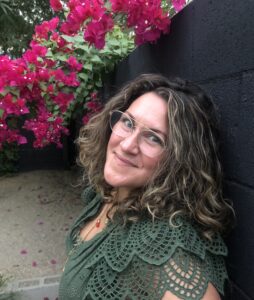Latifa Baqa’s gripping stream of consciousness short story “Adam’s Apple” is a highlight of Issue 21’s portfolio of fiction from Morocco. A feminist, human rights activist, and award-winning author, Baqa is interviewed by The Common interns Sofia Belimova, Olive Amdur, Adaku Nwokiwu, and Eliza Brewer. They discuss editing, the devil in the details, and countering the traditional expectation of the male gaze. Nariman Youssef translated the interview, as well as the original story. This is the first of two interviews conducted by the summer interns with Issue 21 contributors; the second will be with Abdelmajid Haouasse.

TC interns (TC): What inspired “Adam’s Apple?” Can you describe your process of writing and revising it?
Latifa Baqa (LB): The idea behind “Adam’s Apple,” like pretty much all ideas you may find in any of my fictional texts, began with a sentence. Meaning that one sentence preceded the idea, in a way not unlike how one note might resonate in a musician’s head before the rest of the tune. This is how it often happens: before I begin writing, a lone sentence rises up in my thoughts, for no obvious reason. I remember how this one stuck in my head for days: “We shouldn’t lay bare what we carry within us more than once.” The rest of the story followed from that sentence, beginning with a minor character who barely features in the narrative: Alzamourie, the neighborhood’s baker, who was a real person in the working class neighborhood where I was born and raised. To be more precise, one element that started making its way into the story was Alzamourie’s teeth. I just could never forget his teeth. It seems almost absurd, but I find more reassurance in the foggy arbitrariness of memory than in the clarity of conventional reality.


















